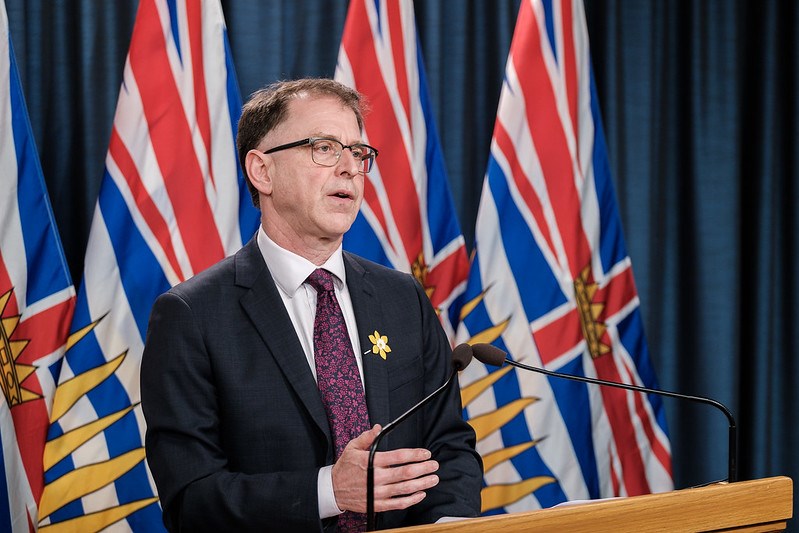B.C. New Democrats are doing their best not to publicly dump on Prime Minister Justin Trudeau’s new health-care funding proposal.
But the private view of many is that it was an insulting, low-ball offer that will do little to help solve the many problems people face in their day-to-day lives at hospitals and doctors offices.
Health Minister Adrian Dix chose to take the better-than-nothing high road when he addressed the media about the situation on Wednesday.
“I'm not going to be negative about the fact that they came to the table,” he said.
“I’m not going to be negative about the fact that they understand, I think, they have a significant role to play. They've got to do better.”
To illustrate how crummy a deal Ottawa has tabled, you have to dig further than the misleading figures placed high in the federal government’s press release that this was “an investment of $196.1 billion over 10 years.”
The number is laughable in several ways.
First, it assumes there was a scenario where Ottawa would cut off the taps and give no health care money at all to the provinces going forward – a move that would have been catastrophic for the Trudeau government. Most of this money was always going to flow to the provinces, so taking credit is misleading.
Second, by framing the deal at 10 years, Trudeau made the funding look larger than it was. There’s no way that this deal is the final word on health care for the next decade. The system continues to collapse in real-time around Canadians, and there are at least two federal elections during the next decade in which Trudeau will have to face angry voters. The political timeline is so useless, he might as well have billed this as a $2 trillion deal over 100 years.
Only $46.2 billion in the proposed deal is new. And that’s to be split across 13 provinces and territories over the next decade.
Drill down, and you end up with this bottom-line figure: British Columbia stands to get only $600 million a year in new health care money under the offer.
That might sound like a lot, but B.C. spends $27.7 billion annually on health care. The new funding is barely a two per cent lift.
The amount becomes even less impressive when you compare it to what the premiers had asked for.
The provinces had wanted Ottawa to increase its share of health funding from 22 per cent to 35 per cent. Instead, they got barely 24 per cent.
B.C. had hoped that the increase would add $4 billion in new annual cash to its health budget. Instead, it got $600 million.
Ottawa trumpeted its offer as “guaranteed five per cent growth” in the Canada Health Transfer for the next five years. B.C. averages growth of 4.8 per cent in health spending in our current, cash-starved system. Basically, Ottawa’s new money will barely hold the system steady where it is now.
“This proposal is fiscally limited,” Premier David Eby said simply when asked about the offer in Ottawa.
So, what now?
The federal proposal is just sitting out there, waiting for the premiers to respond. In all likelihood, they will take the cash because they need it. Then, they’ll keep arguing for more, hoping to apply pressure at key moments in the near future.
Still, it’s another reminder of what kind of prime minister Trudeau actually is. He stiff-armed the premiers on a deal for almost a year, made them agree upfront to transparency and data sharing requirements, leaked to the media how historic his offer was going to be before the premiers had even seen it, then ultimately delivered such a small amount of money it borders on meaningless.
If ever there was a reminder for new B.C. premier Eby not to trust the Trudeau Liberals, this is it. In the meantime, B.C. is going to have to figure out how to fix its many health care problems by itself.
“We are massively responding to an increase in demand by providing more services for people and the evidence of that is seen in the numbers every day, but, you know, the demand is going to continue to grow,” Dix told reporters at the legislature Wednesday.
“We need the federal government to, having recognized the situation, now respond to it better than they did this week.”
He paused. “Without being negative,” he added, chuckling.
But B.C. should be negative. It’s a disappointing deal.
Rob Shaw has spent more than 14 years covering B.C. politics, now reporting for CHEK News and writing for Glacier Media. He is the co-author of the national bestselling book A Matter of Confidence, and a regular guest on CBC Radio.




